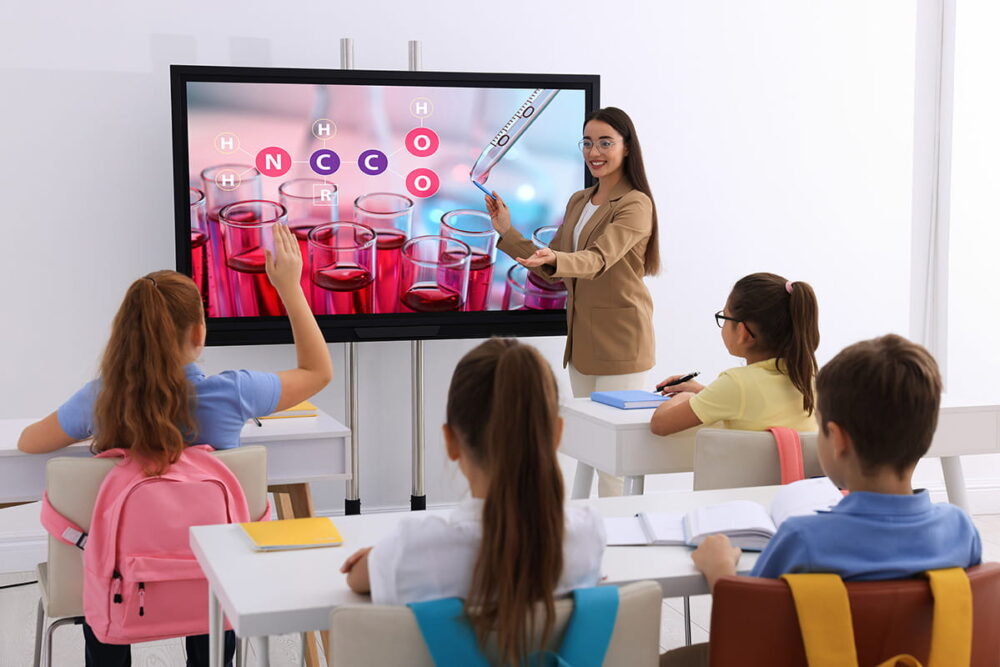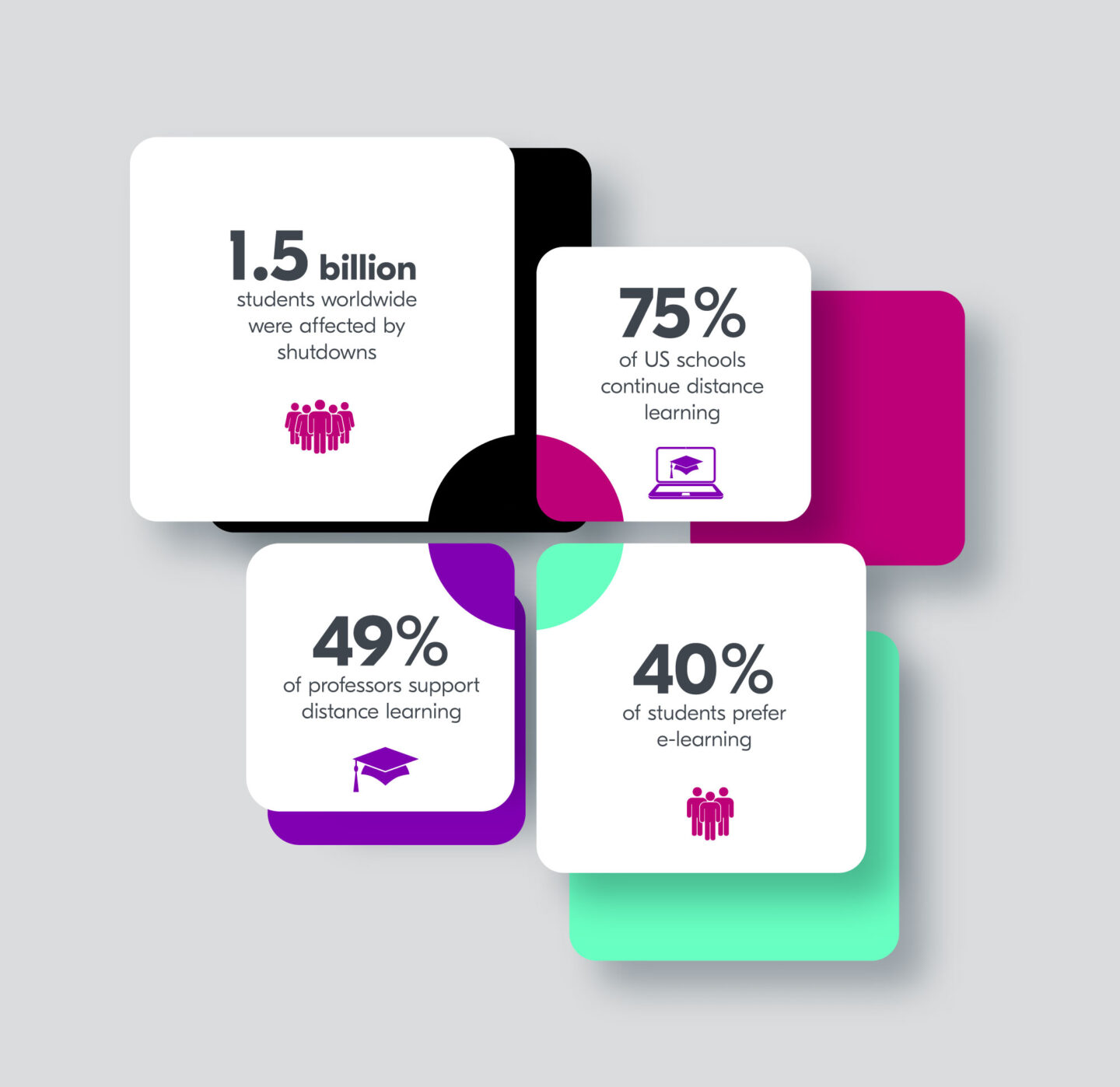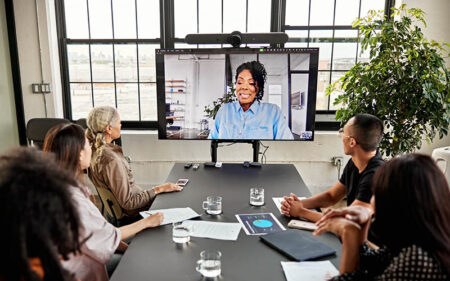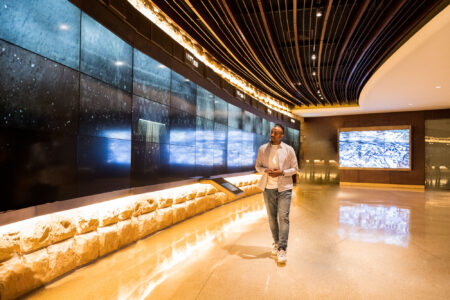April 27, 2022
The new normal
in the classroom

Everyone’s talking about the “new normal” these days. It’s quickly becoming a tired phrase. But like it or hate it, it is the best way to describe our world right now.
So bear with me…
The emergence of hybrid learning – a short timeline
In education, the “new normal” is not so new. It’s been with us in changing forms since the very first days of the pandemic. And it emerged pretty quickly, driven by need.
- 2020 – For the first time, remote learning became the standard for education, even for very young children. Hybrid learning followed, in different formats, as schools with different policies and technologies ironed things out.
- 2021 – The hybrid model took hold in a whole new way. Some days (or even just lessons like art or math) had some kids in the classroom and some at home. Everyone was remote or in person on other days (or lessons). And it constantly switched back and forth.
- 2022 – More kids are returning to the classroom, but it’s not a total return. Having tasted the freedom of hybrid learning and its inherent flexibility, many educators and students want it to stay in some form or another. Hybrid is here to stay. And it keeps getting better!
Lessons in learning throughout the pandemic
So what did we learn over the past two years?
A few interesting facts:
- ~ 1.5 billion students worldwide were affected by shutdowns
- 75% of US schools plan to continue distance learning
- But just 49% of professors currently support it
- While 40% of students say e-learning is more helpful than in-person learning
In addition, we met Gen H – a direct answer to the pandemic, resulting in the largest cohort of users of hybrid solutions and services. Unlike Gen X, Y, and Z, Gen H is not an age thing. It’s a state of mind and a global megatrend that is here to stay. Teach and learn from home and onsite; learn from anywhere with any device. We are all part of it in some way.

Digitized content and online learning
Video used to be king when addressing the education market for the AV industry, with projectors in each classroom. Then, once hybrid learning kicked in, audio took the throne, with the addition of microphones and speakers. Now it’s content that reigns supreme. That’s the distinct challenge of our times.
Students don’t just want to hear or see the content. They want to experience it. That means “being” in the same space as equals – even when it’s a virtual space. No more talking to a blank screen, never seeing feedback on people’s faces. No more viewing classmates in little boxes on a monitor or cell phone screen. Instead, imagine a space that feels like 3D, even if it’s not, where it looks like everyone is sitting in the same room, even if they’re actually in different locations.
Sound futuristic? It’s really not.
Just think, less than ten years ago, we were predicting that AV would be integrated with the IT network. And that’s undoubtedly gaining steam with the advent of solutions that make it easy and secure to connect AV systems to their IT network.
Perhaps even more incredibly, just three years ago, we were still arguing about the efficacy and desirability of BYOD (bring your own device) learning environments. Now there’s no question. BYOD is a must, and AV solutions increasingly support that.
So it is with hybrid too. Schools and universities already using or planning spaces with multiple cameras, speakers, and display screens have laid the groundwork. The next step will be to design learning spaces with an enhanced hybrid experience in mind – which is already happening.
What’s next for education spaces?
It’s an exciting time, and there’s infinite potential as to where hybrid learning might lead. With all that’s occurred in just two years, imagine what the new normal for classrooms will look like ten years from now! I have some ideas, and we at Kramer are working on them.
What do you think? When it comes to education, what’s the new frontier?
Sefi Aharon is the Director of Education Markets Development at Kramer. Would you like to consult with Sefi?









